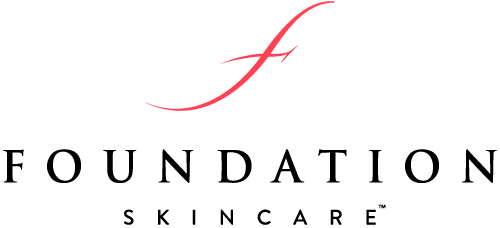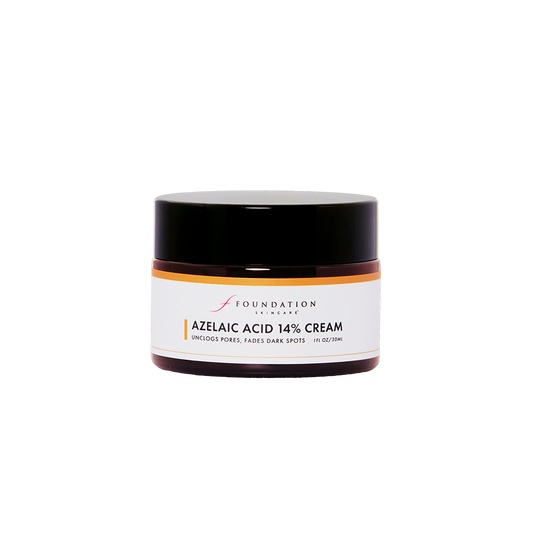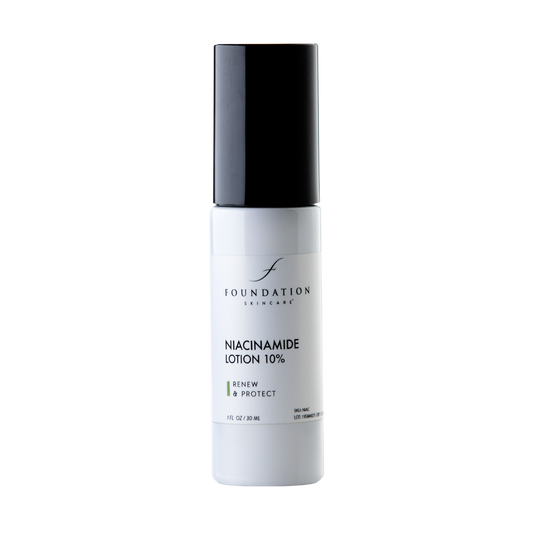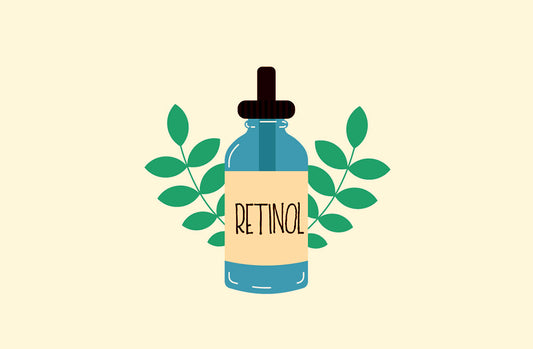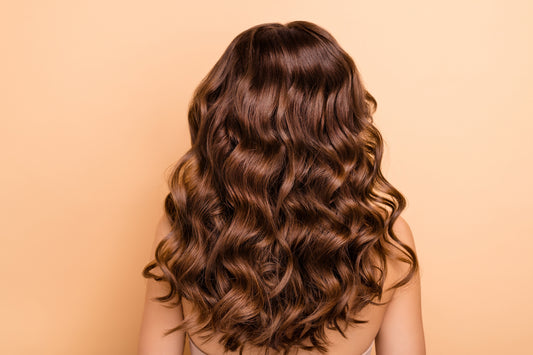Hormonal acne is just as it sounds, driven by our sex hormones. We typically experience our first bout with acne as teenagers, but it can continue to haunt us as adults. According to the Cleveland Clinic, hormonal acne affects around 50 percent of women in their 20s and 25 percent of women in their 40s.1 And while the skin condition does affect men, it is more prevalent in women because of the effects of the menstrual cycle.
Below, Dr. Anthony Nuara, MD PhD FAAD answers some of your most pressing questions around hormonal acne, including what causes it, prevention tips, and how to reduce hormonal acne when it strikes.
Characteristics Of Hormonal Acne
Hormonal acne that occurs during puberty mostly affects the T zone, which includes the chin, nose, and forehead. Lesions may appear as blackheads, whiteheads, small pimples, or cysts. Cystic acne typically forms deep under the skin and doesn’t come to a head. They can be painful to the touch.
Generally, hormonal acne in young women presents as deeper cysts and nodules along the jawline and central forehead. These typically worsen in the 1-2 weeks prior to the menstrual cycle.
Are There Different Types Of Hormonal Acne?
For young men, hormonal acne is driven by the relatively high amounts of testosterone during puberty. The hormones increase oil production, which is the primary food source for acne causing bacteria. In adult men, testosterone supplementation is a common cause of acne.
Drug-induced hormonal acne may be seen in patients who have to take systemic steroids for various reasons. But it can also be seen in patients using inhaled nasal or inhaled oral steroids for sinus congestion or asthma. Some types of birth control, like progesterone-only implants and IUDs, can worsen hormonal acne.
For women, figuring out what causes hormonal acne will likely depend on your menstrual cycle. Hormonal fluctuations in progesterone and estrogen due to menstruation can trigger acne breakouts, but so can the fluctuations associated with pregnancy and menopause. For some women, they are blessed with clear skin their entire life only to find that they begin suffering from hormonal acne as they approach menopause. The distribution and characteristics are similar to hormonal acne in young women.
How To Prevent Hormonal Acne
Preventing hormonal acne isn’t as simple as keeping your skin clean and avoiding chocolate (two misconceptions about what causes acne). While it is important to cleanse your skin twice a day to reduce excess oil, there are a number of other precautions you can take to prevent the likelihood of developing hormonal acne. These include:
- Don’t take excess testosterone or supplements that contain DHEA.
- If you are taking birth control pills, know that while some types may help to prevent hormonal acne, others have been shown to worsen it. Consult with your womens’ health professional if you suspect your birth control pills may be causing your acne breakouts.
- Lower your stress levels. While stress does not cause acne on its own, it can worsen acne by disrupting your hormonal balance.
- Don’t skimp on sleep. Research shows that people who report having poorer sleep quality are more likely to have worse acne.2 This is because during sleep, your body releases growth hormones, which help with cell and tissue repair and restore your skin.
- Replace junk food with plant-based foods. There is some evidence that consuming foods high in antioxidants may help reduce inflammation to promote clearer skin. Omega-3 fatty acids may also decrease skin inflammation, which can potentially prevent future breakouts.3
- Use medical grade azelaic acid. As a preventative method, azelaic acid helps to destroy pore-clogging bacteria on the skin before it leads to a breakout. Foundation Skincare Azelaic Acid Cream contains a 14% concentration of azelaic acid, which is the most potent amount without needing a prescription. Most over-the-counter azelaic acid products contain a smaller amount of the active ingredient, rendering them ineffective. Yet, prescription formulas tend to dry out and irritate skin. Foundation Skincare Azelaic Acid cream strikes the perfect balance–as potent as a prescription, yet gentle enough for sensitive skin.
- Use Foundation Skincare Niacinamide Lotion 10%. Niacinamide is a form of Vitamin B-3, which helps build proteins in the skin and retain moisture. By promoting healthy fats in the skin (lipid barrier) and decreasing the production of sebum, niacinamide prevents acne breakouts without drying out or irritating the skin.
How To Treat Hormonal Acne
A hormonal acne breakout can last just a few days or persist for several weeks. However, taking action is crucial. If left untreated, acne can persist for months at a time. Here’s how to treat hormonal acne:
- Ask your doctor about birth control pills. As stated above, some birth control pills can make acne worse, but there are others that can effectively treat acne flare-ups. Finding the right fit may take some time.
- Other medications, such as spironolactone, which is commonly used to treat high blood pressure, can also be used to reduce hormonal acne. Like birth control pills, this method should also be cleared by your doctor.
- While medical grade azelaic acid can be used to prevent acne breakouts, it can also treat inflammatory acne when it arises. Not only does azelaic acid address inflammatory lesions, but it can also reduce the pigmentation and redness left behind.
Azelaic Acid 14% Cream
• Brightens skin, fades brown spots
• Unclogs pores, improves skin texture
Sale price
$45
- Like azelaic acid, niacinamide can be used to prevent acne breakouts and treat hormonal acne by reducing inflammation. Niacinamide also helps to decrease oil production as well as the blotchiness left behind.
Key Takeaways
Hormonal acne affects people of all ages, but being proactive can help minimize the frequency and intensity of your breakouts. Take preventative methods like avoiding excess testosterone or supplements containing DHEA, and make healthy lifestyle changes like reducing stress and getting adequate sleep. Aim to replace junk foods with plant-based items, which are high in antioxidants that can reduce inflammation.
Niacinamide Lotion 10%
• Helps reduce acne, minimizes flare ups
• Improves inflammation & redness
Sale price
$45
Foundation Skincare Azelaic Acid Cream and Foundation Skincare Niacinamide Lotion 10% can both be used as preventative methods and treatment, while also clearing up the blotchiness and pigmentation left behind after a breakout.
Learn more about the Foundation Skincare collection to revamp your skincare regimen today.
